Theatre History
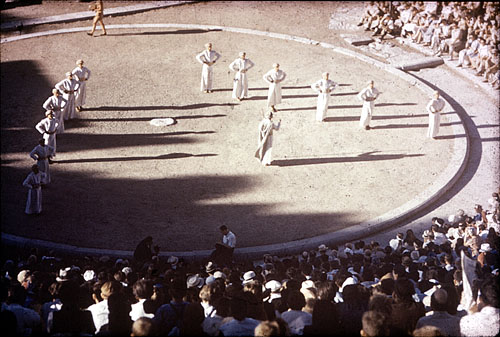
Welcome to the Theatre History web page.
Theatre History is a one semester course designed to give the student an survey of theatre history from pre-history through the contemporary theatre. Studies how the interrelationships among technologies, ideologies, geography, history, architecture, politics, and social expectations related to culture affected theatre productions. Students will engage in group investigative research and reporting as well as individual study.
Class Objectives/Goals
When the student successfully completes the course, she or he will be able to:
- Demonstrate an understanding and appreciation of the theatre as an expression of human creativity, reflecting the values of its artists;
- Demonstrate a basic knowledge of the theatre’s place in the history of Western culture, as it reflects the tendencies and values of artists, audiences, and the larger society;
- Demonstrate a basic understanding of the various styles, artists, and artistic methods involved (including their moral perspectives) in the performing arts on stage, learning basic terminology, methods, and trends in the theatre;
- Identify the principles of basic play analysis, including classifications of different types of plays, the parts of a play, and close consideration of the moral choices made by characters;
- Analyze the live performance of theatre in written and oral communication, including the artists’ purposes and the choices of the characters;
- Imagine and create, through the completion of a creative project, in which the student will make her or his own choices about how to shape the work.
Units of Study 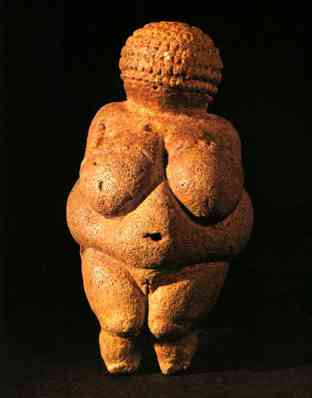
-
Origins of Theatre
- “At a certain stage of development men seem to have imagined that the means of averting [droughts and floods] were in their own hands, and they could help or hasten or retard the flight of the seasons by magic art. Accordingly they performed ceremonies and recited spells to make the rain fall, the sun to shine, animals to multiply, and the fruits of the earth to grow.” - James Frazer
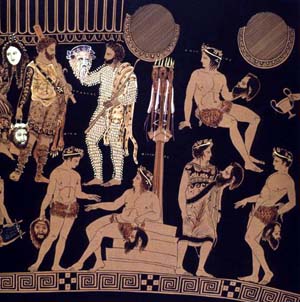
Greek Theatre
- Religious Festivals
- City Dionysia
- Theatre of Dionysus
- Theatre Elements
- Theatre Conventions
- Origins of Comedy
- The three (known) tragedians
- Play Structure
-
Roman Theatre
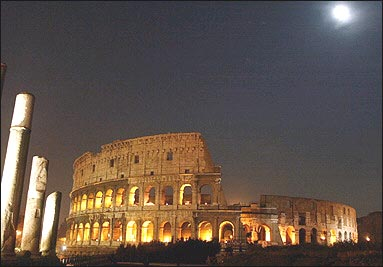
- Roman History
- Fabula Palliata
- Fabula Togata
- Fabula Praetexta
- Bacchus and Pan
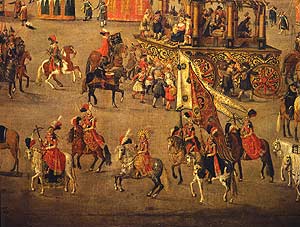 Medieval Drama Medieval Drama
- Liturgical Drama
- Vernacular Plays
- Mystery Plays
- Miracle Plays
- Morality Plays
- Farces and Interludes
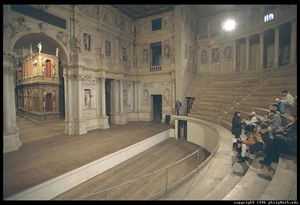
-
Italian Renaissance
- Verisimiltude
- Technical Innovations
- Dramatic Forms
- Commedia dell'arte
- Opera
- Native comedy/tragedy
- Tragicomedy
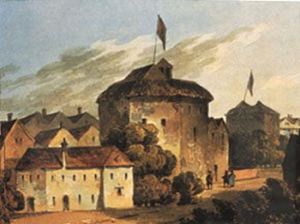 Elizabethan Drama Elizabethan Drama
- British History
- Elizabethan Age
- Globe Theatre
- The Actor
- Thomas Kyd
- Christopher Marlowe
- Ben Jonson
- William Shakespeare
- Tudor Hall
-
French Neo-classic Theatre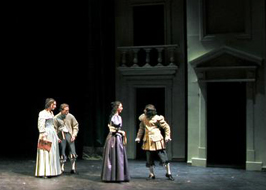
- Early French Theatre
- Confrèrie de la Passion
- Court Entertainment
- King Louis XIV
- Neo-classic Drama
- Comedie Francaise
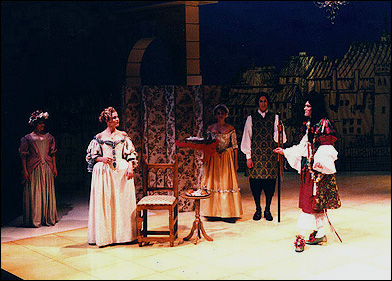 Restoration Drama Restoration Drama
- Comedy of Manners
- Theatre Companies
- Technical Innovations
- David Garrick
- Oliver Goldsmith
- Richard Sheridan
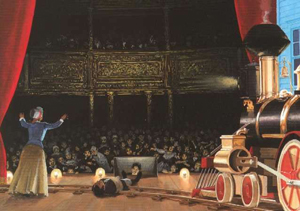
-
19th Century Theatre
- Romantics
- Melodrama
- Well-Made Plays
- Light Opera
- Realism and Naturalism
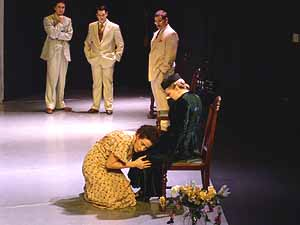
Twentieth Century Theatre
- Early 20th Century Theatre
- Theatre of the Absurd
- Avant-Garde Theatre
- Playwrights of the 20th Century
Top of page
Theatre History Links:
- TheatreHistory.Com - Collections of articles and links on the origins of theatre and theatre history in various countries, cultures, and time periods.
- Specialty Links:
Classical Greek Theatre
Medieval Theatre
Elizabethan Theatre
Top of page
|
|

